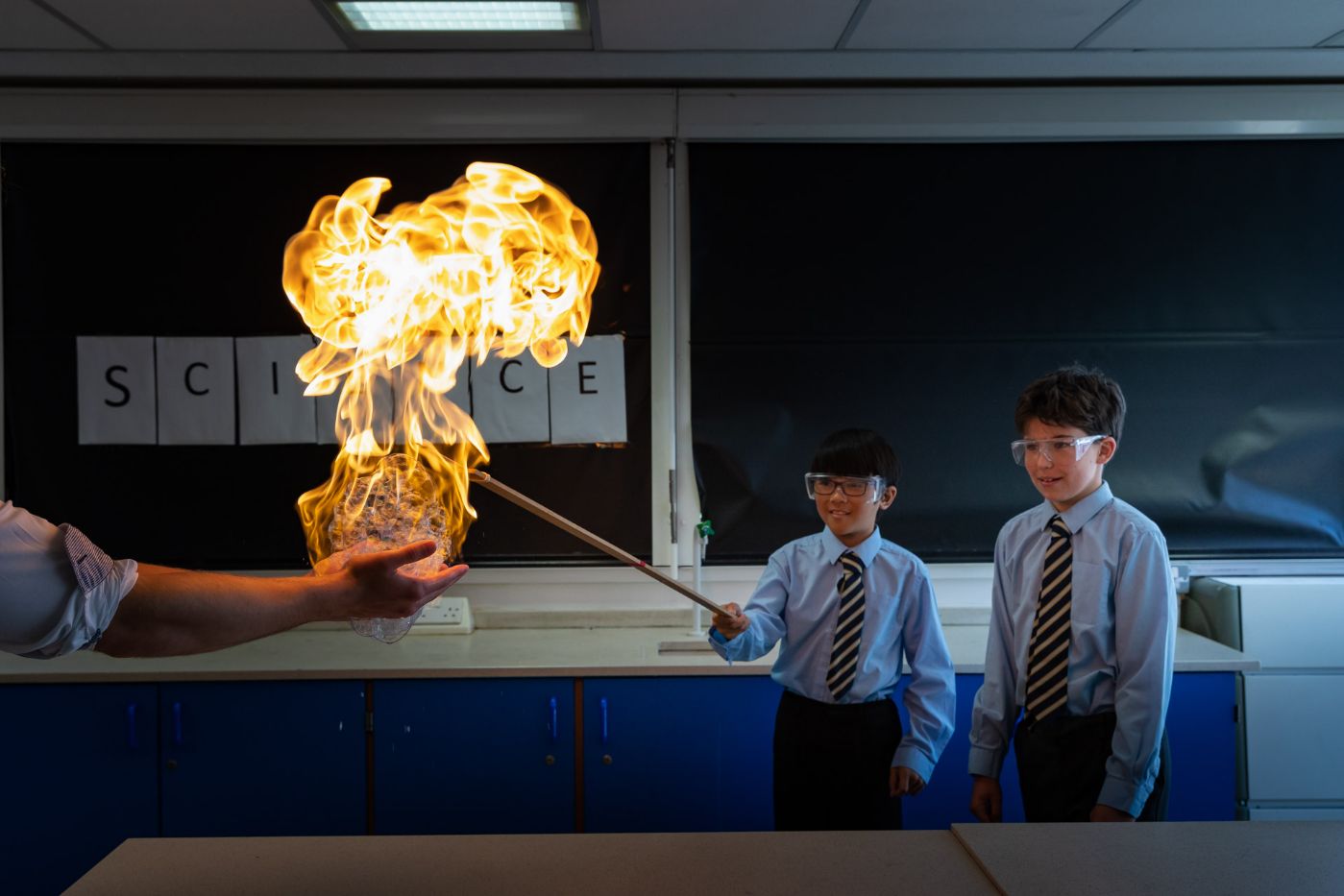
Science
“Equipped with his five senses, man explores the universe around him and calls the adventure Science” (Edwin Powell Hubble, The Nature of Science)
Science enables the acquirement of an understanding of the world around us. Everything we know about the universe, from how trees reproduce to what an atom is made up of, is the result of scientific research and experiment. Human progress throughout history has largely rested on advances in science. From our knowledge of gravity to cutting-edge medicines, students of Science have shaped our modern world. All f these advances can trace their origin back to individuals learning about since as students. That is why it is in the interests of governments, companies and wider society to promote Science as a subject at schools; it ensures the next wave of progress in all of the fields that affect our daily lives. Whilst they are intricately related and merge into each we consider, for ease of study, science at Gunnersbury as the three classical fields of: Biology, Chemistry, Physics.

Biology
Biologists are scientists who study the natural world and all that is living within it, from the largest mammals down to our very own microscopic DNA. At Gunnersbury we seek to understand how animals and organisms work (including us humans); how we evolved; what can take us sick or improve our health. Biologists use this knowledge to achieve breakthroughs such as: trying to stop the spread of disease; track down natural resources; improve public health, animal care and conservation; work out the true impacts of factors such as pollution. Our excellent teaching and brilliant experiments make Biology such unexceptionally enjoyable subject.
Physics
Physicists look for all the hidden laws that explain why all matter (that’s every physical thing) and energy in the known universe exists, where it comes from and how it behaves the way it does. So if you’re wondering how forces of nature, like gravity, work or how aircraft stay up in the air, you’ll need to refer to a physicist such as Brian Cox, Stephen Hawking or Albert Einstein for an explanation. Or maybe, through your learning in our superb Physics department, you’ll be able to answer all of these questions and many more yourself!
Chemistry
Chemists conduct experiments to: study how elements work in different conditions, test how they mix, and work out what they are made up of right down to the tiniest particle. The results can be ground-breaking, colourful, explosive, or almost impossible to see. Chemists use their experiments and knowledge to develop medicines, foods, fabrics and other materials; from neon lights to shatterproof glass. Pick up a can of cola and you’ll find chemistry everywhere, from the metal can you’re holding, to the paint used to cover it and the liquid inside. Just breathe in and out and you’re performing a chemical reaction, which is a little scary, but pretty great too… With its myriad of experiments and amazing facts you’ll love Chemistry at Gunnersbury!
Linked below are our Science Learning Journeys. These set out the knowledge and skills that you will acquire in Science from joining the school in Year 7 to your last day in Year 13.

